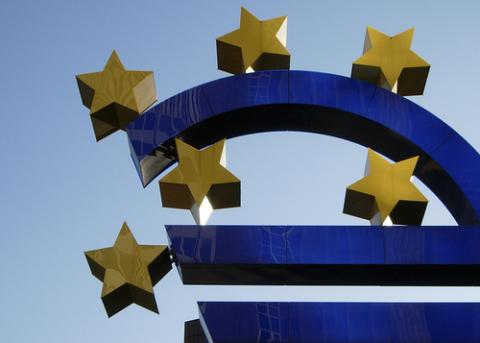On the brink of disaster

While the world financial system teeters on the brink of a far worse crisis than that of 2008, we here in Ireland are distracting ourselves with the vacuities of the presidential campaign. By Vincent Browne.
A spokesperson for the German government in Berlin said a few hours ago (this is being written at lunchtime yesterday) that the German finance minister, Wolfgang Schäuble, had told his cabinet colleagues there were “no plans” to enlarge the European Financial Stability Fund beyond €440 billion.
Just last weekend at the G20 finance ministers meeting, it was being said that €2 trillion (€2,000,000,000,000) would be needed to resolve the euro crisis and the imminence of a Greek default.
An hour ago, Angela Merkel said Germany continued to stand by Greece. She said she was determined to help Greece “regain confidence”, as long as it met its fiscal targets, which Greece cannot do. At the same event in Berlin, Greek prime minister George Papandreou said Athens would meet its commitments to the international community and rebuild its economy. But, he said, the European Financial Stability Fund (Europe’s main bailout fund) must be strengthened and Europe must have a closer fiscal union. The euro zone must now take bold steps toward fiscal integration to stabilise the monetary union, he insisted.
George Papandreou is probably right but the Germans are having none of this and, anyway, the German constitutional court has indicated it will have none of this either.
On Monday night Barack Obama said Europe’s failure to fix its banking sector had been compounded by the Greek crisis, creating a situation that is “scaring the world”.
He said of European politicians: “They’re trying to take responsible actions, but those actions haven’t been quite as quick as they need to be.”
Merkel had met the Pope in Berlin last week and she said afterwards: “We spoke about the financial markets and the fact that politicians should have the power to make policy for the people, and not be driven by the markets.”
But politicians, even in Germany, have little power; all the more so since the parties in government, the Christian Democrats, led by Merkel, and the Free Democrats (FDP), a small right-wing faction, rather like the late Progressive Democrats here, are in disharmony on European policy, with the FDP turning Eurosceptic.
On Monday the influential Financial Times columnist Wolfgang Munchau wrote: “What was once a debt problem of small peripheral countries is now threatening the euro’s existence.”
He went on to write that, on a purely technical level, the euro crisis can be resolved but there was now a political problem, primarily with Germany.
The debate has focused entirely on what cannot be done rather than what can be done: “no eurobond, no monetisation, no this, no that.” And the political problem was not only in Germany but in Finland, the Netherlands, Slovakia and Greece.
Also on Monday, another influential commentator, Paul Krugman of the New York Times, a Nobel economics laureate, wrote: “Europe’s situation is really, really scary: with countries that account for a third of the euro area’s economy now under speculative attack, the single currency’s very existence is being threatened – and a euro collapse could inflict vast damage on the world.” But, he wrote, European policymakers seem set to deliver more of the same. “They’ll probably find a way to provide more credit to countries in trouble, which may or may not stave off imminent disaster. But they don’t seem at all ready to acknowledge a crucial fact – namely, that without more expansionary fiscal and monetary policies in Europe’s stronger economies, all of their rescue attempts will fail.”
Meanwhile we here in Ireland seem in denial, welcoming the presidential campaign as a distraction. Welcoming even the prospect of self-serving, vacuous campaign speeches; arguments about almost nothing at all. And it will hardly matter who is elected; for whoever it is, nothing will change. Nothing will change, that is, as a consequence of who is elected but, by the time of the election, a great deal may have changed.
Quite simply, the world financial system is teetering on the verge of a major crisis, far worse than what occurred in 2008 and the consequences of such a crisis are certain to involve the devastation of the lives of billions of people.
Shouldn’t we be questioning an economic and political system that leaves the welfare of billions of people at risk from the machinations of those manipulating market forces for their own enrichment? And those exchanges between Angela Merkel and the Pope about the people’s elected representatives taking decisions rather than financial markets – with apologies to Enda Kenny: wasn’t the Pope right on that one?
Image top: future15pic.
